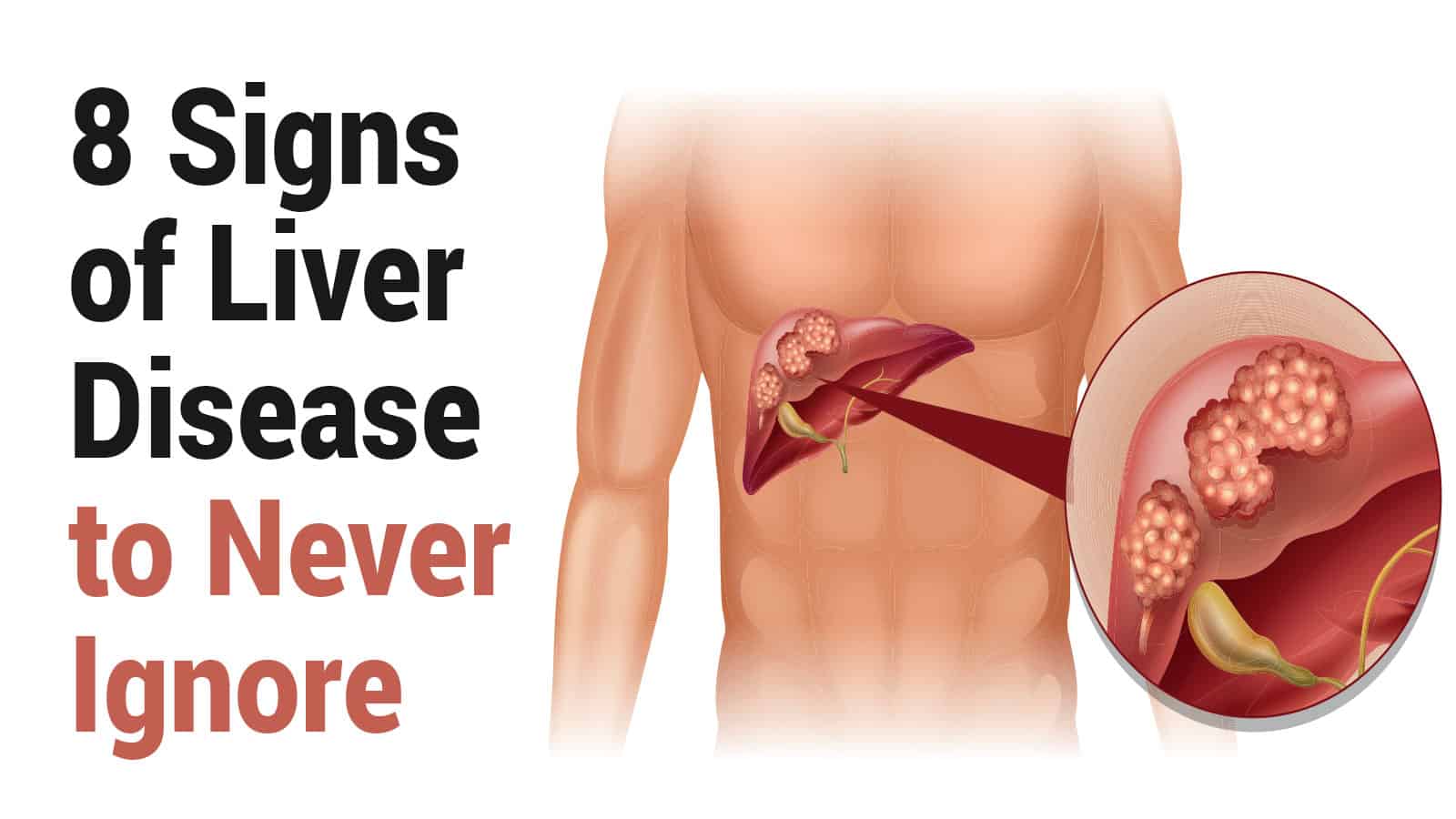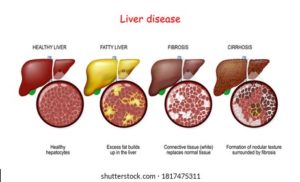It is believed that yourliver is a vital organ that can perform a myriad of duties in relation to energy metabolism and the elimination of waste. It assists you in digesting food, converting it into energy, and then storing your energy till you require it. It also helps remove harmful substances from the bloodstream. Liver disease can disturb your digestive system as it is part of the symptoms.
The term “liver disease” is a broad term used to describe any liver condition that affects you. The conditions can arise due to a variety of reasons, however, they could all harm your liver and alter the function of your liver.
What are the main symptoms?
The signs of liver disease can vary dependent on the causes. There are however several general symptoms that can suggest a specific liver condition.
They include:
- Eyes and skin are yellow and eyes, referred to as jaundice
- Dark urine that is dark
- dark, bloody stool, black or bloody
- swelling of legs, ankles, or abdominal
- nausea
- vomiting
- less appetite
- continuous fatigue
- itchy skin
- Easy bruises
What are the most common liver diseases?
A variety of conditions can impact the liver. Here’s a brief overview of some of the most common.
Hepatitis
Hepatitis can be described as an infection caused by viruses that affect your liver. It can cause inflammation and liver damage, which makes it hard for the liver to perform exactly as it should.
All forms of hepatitis are infectious However, you can minimize your chance of contracting the disease by having a vaccination for the types B and A or by taking other preventive measures that include practicing safe sexual sex and avoiding sharing needles.
There are five kinds of Hepatitis:
- Hepatitis A is usually transmitted by contact with food or drinking water. The symptoms may go away without treatment, however, the recovery process can take several weeks.
- Hepatitis B is a condition that can become severe (short-term) and persistent (long-term). It is spread through bodily fluids like semen and blood. Although hepatitis B is treated, there is no cure. The earlier treatment is crucial to avoid complications, therefore it’s recommended to have regular tests if you’re at the risk of developing.
- Hepatitis C can be chronic or acute. It’s typically spread by contact with the blood of those suffering from the virus C. Although it usually does not cause any symptoms in the early stages, however, it could cause irreparable liver injury in the later stages.
- Hepatitis D can be a severe form of hepatitis which only manifests in people suffering from the virus B — which isn’t able to be contracted by itself. It could also be chronic or acute.
- Hepatitis E can typically result from drinking water that has been contaminated. It usually clears by itself within some weeks and without long-term problems.
Fat liver disease
A buildup of fat in the liver could cause an illness called fatty liver.
There are two kinds of liver diseases that are fatty:
- Alcoholic fatty liver disease is caused by excessive drinking of alcohol
- The nonalcoholic fatty liver disease is caused by various other factors, experts are trying to determine
If not managed, both kinds of fatty liver disease could cause damage to the liver, which can lead to cirrhosis and even liver failure. Diet and other lifestyle modifications will often help alleviate symptoms and lower the chances of suffering from complications.
Autoimmune conditions
Autoimmune diseases affect your immune system mistakingly attacking healthy cells within your body.
Many autoimmune disorders can cause your immune system to attack the liver and cells and lungs, which includes:
- Autoimmune Hepatitis. This condition can cause the immune system of your body to fight the liver, which results in inflammation. If left untreated, it could result in cirrhosis and even liver failure.
- Primary biliary liver cirrhosis (PBC). This results from damaged bile ducts of your liver, which causes the accumulation of bile. PBC may cause cirrhosis or liver failure.
- Primary sclerosing Cholangitis. This inflammatory condition causes ongoing damage to the Bile and ducts. They then become blocked, which causes bile to accumulate within the liver. This can cause the development of cirrhosis or even liver failure.
Genetic disorders
A variety of genetic disorders, which you inherit from your parents, may impact your liver:
- Hemochromatosis results in your body storing more iron than is needed. Iron is stored in organs, such as the liver. It can cause harm over a prolonged period of time if not properly managed.
- Wilson’s illness causes your liver to take in copper, rather than release it into the bile drains. In time, your liver could be damaged enough to hold more copper which allows it to move through your bloodstream, causing damage to other organs of your body including the brain.
- The Alpha-1 Antitrypsin (AT) insufficiency can occur when your liver doesn’t produce enough alpha-1 antitrypsin. It’s which is a protein that assists in preventing the breakdown of your body’s enzymes. The condition can lead to lung diseases as well as liver disease. There’s no cure, however, treatment is a possibility to assist.
Cancer
Liver cancers first develop in your liver. If cancer develops elsewhere within the body, but then spreads to the liver, it’s referred to as secondary liver cancer.
The most well-known form of cancer in the liver is hepatocellular carcinoma. It can manifest as a series of small-sized sports liver cancer however, it could be an individual tumor.
The complications of liver disease particularly those that aren’t addressed can cause the development of liver cancer.
Cirrhosis
Cirrhosis refers to the scarring caused by liver disease as well as other causes of damage to the liver including alcohol-related disorders. Syphilis and cystic fibrosis can result in damage to the liver, and eventually the condition known as cirrhosis.
Your liver may regenerate when it is damaged however this process typically leads to the formation of scar tissue. As the more scar tissue grows, the more difficult it becomes in order for the organ to work as it should.
In its early stages, the cirrhosis condition is usually treated by treating the root cause. If it is not treated it could lead to additional complications and can even be life-threatening.
Failure of the liver
chronic liver fails is usually triggered when a significant portion of the liver is damaged and isn’t functioning properly. Typically, liver failure due to liver disease or cirrhosis occurs slowly. There may be no signs at first. Over time, however, you could begin to observe:
- jaundice
- diarrhea
- confusion
- weak and fatigue
- nausea
It’s a serious illness that requires continuous management.
Acute liver failure however occurs suddenly, usually as a result of poisoning or overdose.
Do I have a risk?
Certain factors are likely to cause you to get certain liver ailments. The most widely known is excessive drinking that according to the Centres for Disease Control as well as Prevention Trusted Source describes as having more than eight drinks of alcohol per week for women, as well as more than fifteen drinks per week for males.
Other risks include:
- Sharing needles
- creating a tattoo, or body piercing using needles that aren’t sterilized
- working in a position where you’re exposed to bodily fluids
- engaging in sexual relations without taking precautions against sexually transmitted diseases
- being diabetic or having high cholesterol or diabetes.
- with a family history of liver disease
- being overweight
- exposure to pesticides or toxins
- using certain herbs or supplements when you are taking supplements, or herbs in large amounts
- mixing certain drugs with alcohol, or taking more than the recommended dosage of certain drugs
How can liver disease be diagnosed?
If you’re worried that you may have a liver problem It’s best to schedule appointments with your physician to determine the cause of your symptoms.
They’ll begin by reviewing your medical history and inquiring about any liver-related issues in your family. They’ll then likely ask you concerns about your symptoms, such as the time they began and whether certain factors cause them to get better or worse.
Based on the symptoms you’re experiencing You’ll probably be inquired about the way you drink and eat. Also, be sure to inform the doctor or pharmacist about prescriptions and over-the-counter medication you’re taking, like supplements and vitamins.
After they’ve gathered all the information they need, they can suggest:
- tests for liver function
- Complete blood count tests
- CT scans MRIs and ultrasounds are used to determine if there is damage to the liver or tumors
- A sample of your liver that involves taking one small amount of your liver, and then examining the liver for signs of damage or illness
What is their treatment?
A number of liver conditions are chronic, which means they persist for a long time and could not go away. But even the most severe liver conditions are usually manageable.
For some, the lifestyle changes they make are sufficient to help keep symptoms at bay. This could include:
- The restriction of alcohol
- Maintaining the right weight
- drinking more drinking more water
- following a diet that’s rich in fiber, while also reducing sugar, fat, and salt
Based on the particular liver problem you are suffering from the doctor might suggest other changes to your diet. For instance, those with Wilson’s disease should avoid food items that contain copper, like mushrooms, shellfish, and nuts.
If the problem is related to your liver’s condition, you could also require medical treatment that includes:
- antiviral medications to treat Hepatitis
- Steroids to decrease inflammation in the liver
- Blood pressure medication
- Antibiotics
- drugs to address specific issues like itchy skin
- Vitamins and supplements to improve the health of your liver
In certain situations, it is possible to undergo surgical removal of all or a portion or all of the liver. In general, the procedure of an organ transplant is only performed after all other alternatives have been unsuccessful.
What’s the future?
A variety of liver disorders are treatable If you recognize them early. If left untreated they could result in permanent damage. If you are experiencing any signs of a liver issue or are in danger of being diagnosed with one, be sure you check with your doctor for regular examinations and tests when needed.


